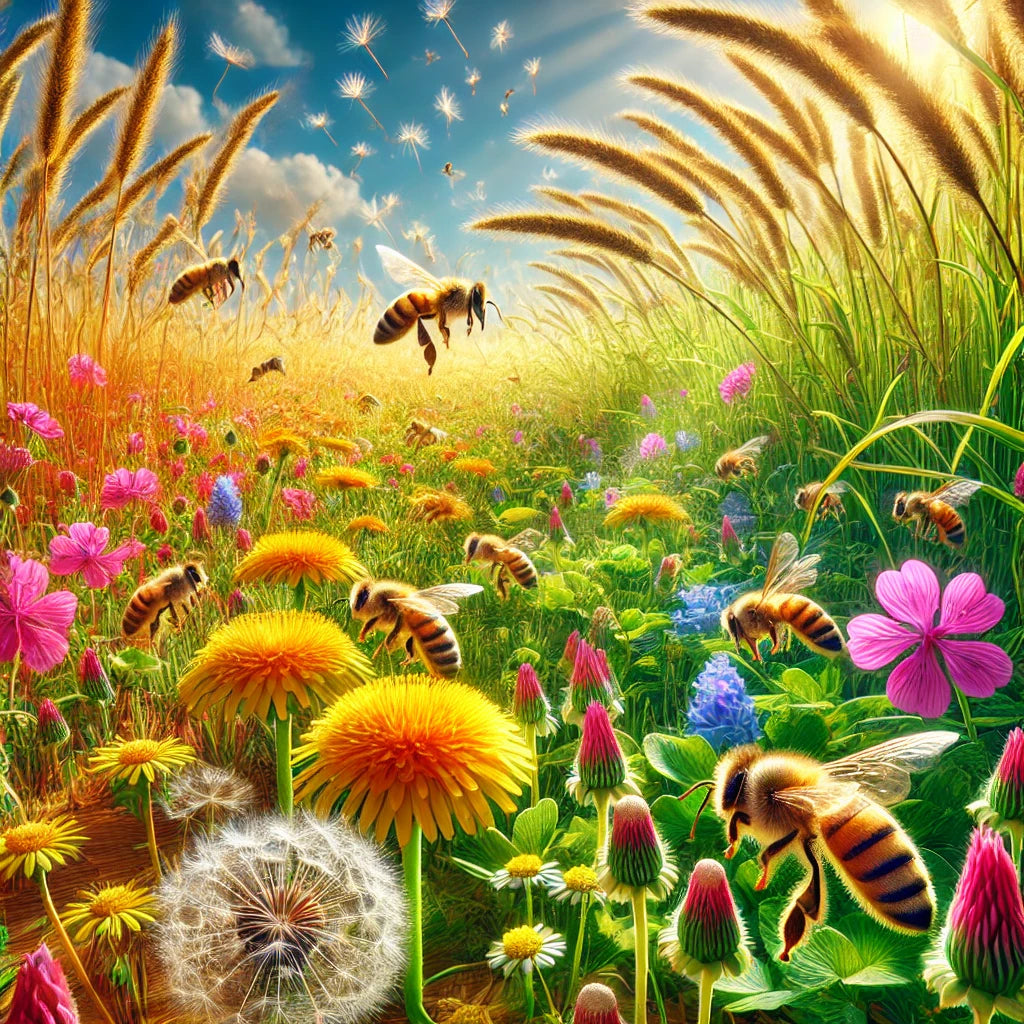Do bees pollinate grass? The simple answer is no, bees don’t pollinate grasses. Grass plants, like those found in fields of wheat, barley, and corn, rely on wind, not insects, for pollination. Grasses are wind-pollinated, meaning their small, lightweight pollen is carried by the breeze from one plant to another.
Unlike many flowering plants that attract bees and other insects with nectar and bright petals, grasses have evolved to rely solely on the wind for reproduction.
How Does Grass Pollinate?
How does grass pollinate without the help of bees? Grass plants produce a vast amount of pollen, which is released into the air. These plants rely on the wind to carry the pollen to other grass plants, where it fertilizes the flowers and helps the plant reproduce. While bees are responsible for pollinating a variety of flowers and crops, they are not involved in this process for grasses. Wind-pollinated plants, like grass, often lack the showy flowers and nectar that typically attract bees.
Do Bees Ever Collect Grass Pollen?
While bees don’t pollinate grasses, they can still occasionally collect pollen from grass plants. However, this usually occurs when other, more nutritious pollen sources are scarce. Grass pollen is not a preferred food for bees due to its low nutritional content compared to flower pollen. When bees do collect it, they are simply using what is available rather than actively contributing to grass pollination(
The Role of Bees in Pollination for Other Crops
Though bees are not involved in grass pollination, they are essential pollinators for many other crops. The benefits of bees in agriculture are immense, as they help pollinate flowers that produce fruits, vegetables, and nuts. Beekeepers who want to maximize their impact on crops can explore how to start a bee farm to help ensure that bees thrive. By providing bees with a healthy environment, pollination efficiency for other plants is significantly improved.
Using tools like bee trap attractants can help guide bees toward flowers in your garden or farm. While this won’t help with grass, it will enhance the pollination of other plants that depend on bees for reproduction.
Beehive Dynamics and Grasslands
Bee colonies are structured to support the efficient collection of pollen and nectar from flowering plants, not grasses. Beekeepers who understand the diagram of a beehive know how important each role in the hive is for maintaining bee health and promoting pollination. While bees are vital to the health of many ecosystems, their presence in grasslands is primarily for collecting pollen from nearby wildflowers, rather than pollinating the grass itself.
Enhance Your Pollination Efforts with Swarm Commander
Though bees are responsible for pollinating many types of plants, they do not play a role in grass pollination. Grasses rely on wind to disperse their pollen. However, bees remain essential to many ecosystems and agricultural crops, helping plants thrive through effective pollination. Supporting bee populations, whether through bee hive relocation or using bee trap attractants, ensures that these vital pollinators continue to support our food systems and biodiversity.
While bees don’t pollinate grass, they are crucial for many other plants. Visit Swarm Commander to explore our range of products, including beetle traps for beehives and protective clothing, to create an optimal environment for pollinators.
Frequently Asked Questions About Why Honey Bees Don’t Pollinate Grass
Q1. Do bees pollinate grass?
No, bees do not pollinate grass. Grass relies on wind for pollination.
Q2. How does grass pollinate?
Grass releases pollen into the wind, which then carries it to other grass plants for fertilization.
Q3. Do bees collect grass pollen?
Yes, but only when other more nutritious pollen sources are scarce. Grass pollen is not their primary food source.
Q4. What plants do bees primarily pollinate?
Bees pollinate a wide range of flowering plants, including fruits, vegetables, and nuts, but not grass.
Q5. How can beekeepers support pollination in their crops?
Beekeepers can use tools like bee trap attractants to attract bees to their crops and improve pollination efficiency.



